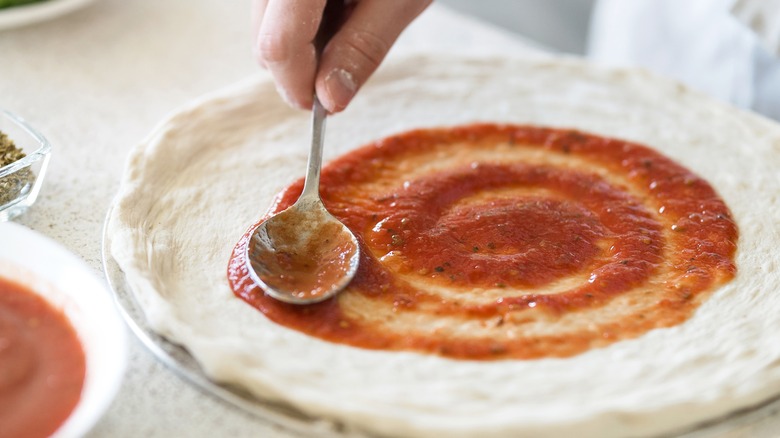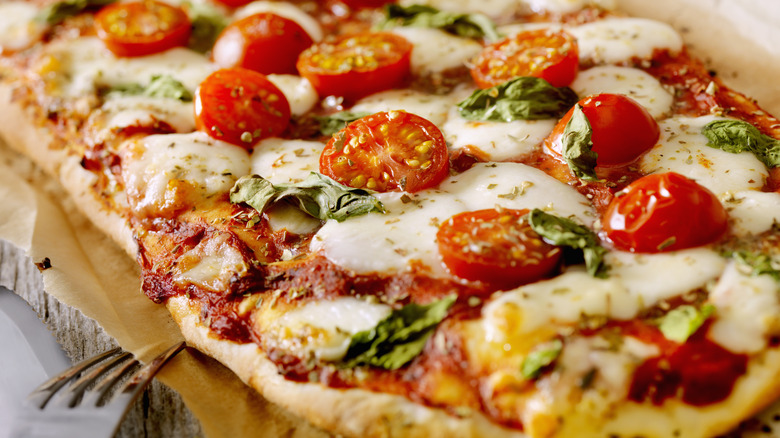For Better Tasting Homemade Pizza, You Need To Rethink Your Sauce
Italian cuisine always ranks as the most delicious and beloved on earth, and yet the most iconic Italian recipes are often the simplest. A case in point is pizza. Despite the diversification of styles and long list of topping options, authentic Italian pizza uses the shortest list of high-quality ingredients to make every element. The simplicity of ingredients and preparation specified by Italians will serve you well in your quest to make better homemade pizza. Perhaps the most surprising and helpful culinary tip for pizza is not cooking the sauce.
Despite popular belief, pizza sauce doesn't need numerous ingredients, and boiling or simmering it over the stove does it a disservice. Standard Neapolitan pizza-sauce preparation involves crushing fresh or canned San Marzano tomatoes with a pinch of salt, garlic, and fresh basil. While simmering is par for the course in a tomato sauce recipe for pasta, Italian chefs argue that a piping hot pizza oven is all the heat pizza sauce needs to bloom its flavors. If you simmer the sauce and cook it in a pizza oven, the scorching heat will actually dull the flavors you tried to develop over the stove.
The savory oils from the cheese or meat toppings will infuse the tomato sauce with even more flavor as it bakes. Consequently, pizza sauce doesn't require olive oil either. In fact, some experts declare that pizza oven temperatures will burn olive oil, so you should save your special extra virgin olive oil for a finishing drizzle.
More tips to improve homemade pizza
Sauce is only one of the three components of a pizza you can improve upon by simplifying. Other tips regarding the dough, toppings, and proportions will collectively lead to the perfect homemade pizza.
While a Neapolitan pizza dough recipe comes together in a one-bowl method in a couple of minutes, it ends up being the most time-consuming part of pizza due to various proofing periods. However, it's these resting periods that determine the success of your dough. A pro tip for proofing pizza dough is to first let the dough balls rest in your fridge or freezer. The minimum required resting period is 24 hours, but some seasoned pizza makers recommend 72 hours in the freezer. Freezing or refrigerating the dough for a long stint aids fermentation and gluten development. Even if you buy pre-proofed dough balls or pre-rolled pizza crust, letting it sit in the fridge for an hour or two will have similar effects.
When it comes to toppings and layering, simplicity applies to the proportions and quantity. Whether its cheese, veggies, or meat, less is more. The same applies with sauce. All you need is a thin layer of sauce, a light sprinkling of cheese, and well-spaced dottings of one or two toppings for the most well-rounded bite every time. If you overload the pizza with a thick layer of cheese, it'll mask the flavor of the sauce and overpower the other toppings. Too many toppings will weigh the crust down.

